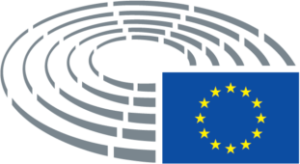The provocation could not go unanswered: on the one hand, AstraZeneca is massively reducing, overnight, the volumes of vaccines it intends to deliver to Europeans. On the other hand, the pharmaceutical group is seeking to export 250,000 doses of its vaccine from Italy to Australia – a country that has no more than 10 new infections a day! How urgent was it to deliver vaccines to a country that is not experiencing a health crisis, when many countries in Europe are in a state of an absolute health emergency?
By blocking, for the first time since the implementation of the vaccine export control mechanism, the shipment of these doses of AstraZeneca vaccines to Australia, Mario Draghi, in coordination with Commissioner Thierry Breton, sent a very clear message from all Europeans to all those who thought that we could be mocked with impunity. We do not want a vaccination war. But we are not naïve: the vaccination war with the rest of the world is already underway. We are protecting European citizens. And when one doesn’t respect one’s contractual commitments to the European Union, there will be consequences.
Beyond the figures, this new episode only confirms what the events of recent months have already shown: AstraZeneca is not prepared to cooperate in a transparent and open manner with the European Union.
We must learn from this.
Firstly, the European Commission must examine in detail all requests to export vaccines from its territory and systematically block doses destined for regions with little or no pandemic. It goes without saying that as long as Europe faces the threat of a third wave, these exports cannot be prioritised.
Secondly, we need to make it clearer to companies who want to take advantage of the benefits of the Single Market or European research funds that the EU will always be their partner, but only if they play fair with us and respect European rules. Italy’s blocking of exports of AstraZeneca vaccine doses to Australia is a welcome first step, but certainly not the last in this change of tone in European policy.
Finally, more generally, as discussions on the advisability of using Russian and Chinese vaccines become increasingly intense, let us be careful not to fall (back) into national egotistical reflexes and let us respect the opinions of the relevant experts: it is up to the European Medicines Agency, and only the Agency, to authorise or not authorise the use of Russian and Chinese vaccines in the European Union. My column in l’Opinion




